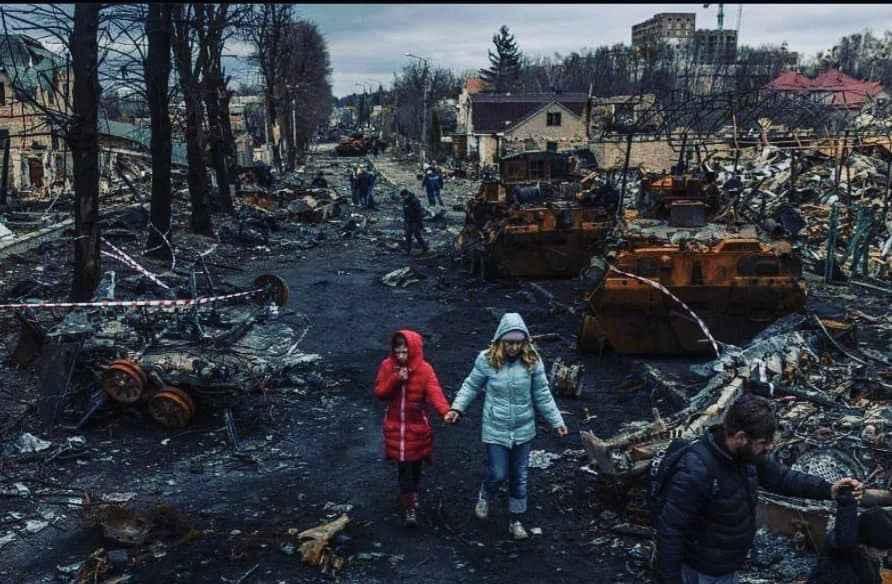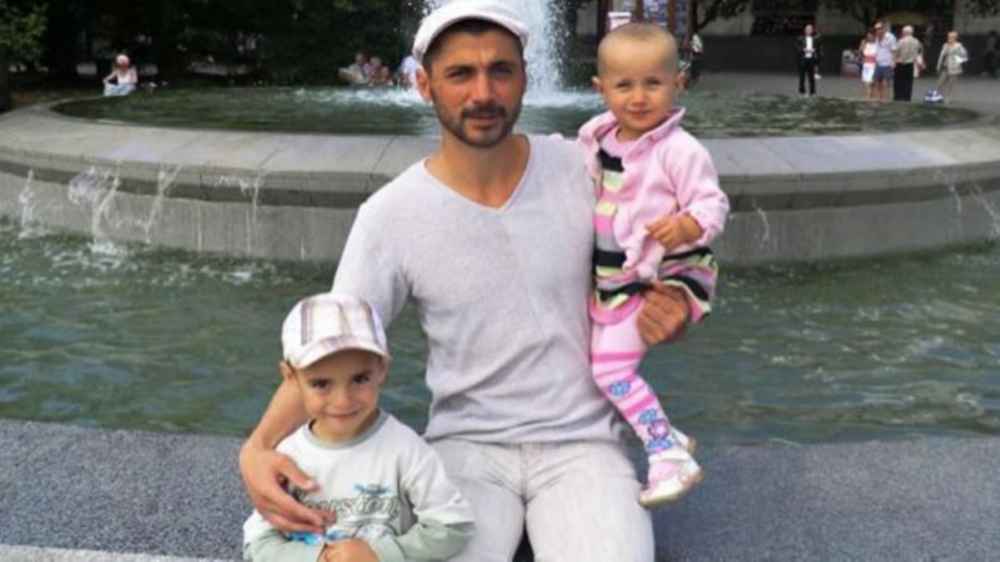
Maidan activists were the first to go missing in Crimea in 2014 — Romantsova
Who were the initial victims of Russian aggression in Ukraine, the first Ukrainians abducted by the occupiers, and why is it crucial not to forget how it all began?

Unfortunately, some, like Gennadiy Afanasiev, lost their lives. Afanasiev, who had been released, later joined the defense of Ukraine following the full-scale Russian invasion. However, there are those whose fate remains unknown even ten years later, such as Reshat Ametov.
This was discussed in the latest episode of the program «Free Our Relatives» on the tenth anniversary of Russia’s armed aggression against Ukraine.
For a decade, Oleksandra Romantsova, a human rights activist at the Centre for Civil Liberties, has been monitoring war crimes.
Oleksandra Romantsova, a Ukrainian human rights activist and the executive director of the Centre for Civil Liberties, coordinated a project to monitor human rights violations and war crimes in eastern Ukraine in the ATO zone and political persecution in the occupied Crimea even before the full-scale invasion of Russia. She has frequently organized and participated in campaigns advocating for the freedom of Ukrainian political prisoners. After the full-scale invasion, the Centre for Civil Liberties established the initiative «Tribunal for Putin», and was awarded the Nobel Peace Prize in 2022.
«The first people to go missing were from Maidan»
Oleksandra Romantsova: In fact, the first people who went missing in Crimea were Maidan activists. Between 2013 and 2016, the Euromaidan-SOS initiative, which I was part of, was unable to locate about 39 people from Maidan. These individuals were the first missing persons in the territory of Crimea, as we later discovered during the occupation.
Later, individuals were arrested precisely because of their opposition to the occupation of Crimea by the Russian army. These people were either participants in the first peaceful protests against the occupation or individuals who simply lived in their homes or on their farms but demonstrated their commitment to Ukraine, such as by flying the Ukrainian flag on their property.
In particular, these categories included individuals engaged in professional activities, with many being journalists—a targeted group. They faced abductions, arrests, and detention, often in appalling conditions. We found that 67% were subjected to some form of torture almost immediately upon their initial arrest, including traditional methods like connecting body parts to electric current, beating, and suffocation. Thus, we witnessed a lot of these abuses in Crimea.

Resistance of the Crimean Tatars
Oleksandra Romantsova: At the time, we were all horrified. We initially identified this trend in 2014, noting 11 cases. Over the next four years, this number escalated to hundreds of people.
The Crimean Tatars emerged as a significant target group due to their internal self-organization, the representative functions of the Mejlis and Kurultai, and their deep traditions of peaceful struggle upon returning to Crimea during the Soviet period.
We observed unique cases where a Crimean Tatar was not automatically recognized as a Russian citizen, despite the automatic issuance of Russian passports and citizenship to everyone. One individual, the youngest dissident in the Soviet Union, was eventually forced to leave Crimea. The Russians swiftly perceived the danger in the self-organization of the Crimean Tatars and their history of resistance.
This marked the beginning of political imprisonment, prompting our initial campaign called «Let My People Go». Subsequently, our efforts continued with the «Save Oleg Sentsov» campaign following Oleg Sentsov’s hunger strike. Currently, about 200 people remain in political captivity, facing charges of extremist and espionage activities. Most of these individuals were taken from Crimea and are sentenced in Rostov and Moscow courts. They are often sent to distant regions of the Russian Federation, such as Labutanga, to minimize opportunities for their relatives to offer support or visit.
Why did some civilians in Crimea and Donbas calmly accept the occupation?
Oleksandra Romantsova: In Crimea, Russia invested substantial amounts of money to ensure that the civilian population not only refrained from resistance but also failed to comprehend the issue. The presence of Russian troops was normalized, with a gradual increase in their numbers. This operation had been decades in the making. The civilian population, lacking a sense of imminent problems, was largely indifferent. Those who had been involved in the Maidans, however, perceived the military and police presence as potential threats. It’s worth remembering that before the Maidans, the idea of police dispersing crowds was unthinkable.
At that time, no one was prepared, considering Yanukovych and the Minister of Internal Affairs had fled. There was no authority to give orders to resist, be it the army, the SBU, or the police.
Regionally, both Donbas and Crimea were more aligned with local administrators than Kyiv. In Donbas, approximately 90% of law enforcement officers joined the separatist movement due to corrupt ties with regional administrators in Donetsk and Luhansk.
In Crimea, the collapse of authority created confusion about decision-making, and many were in a state of prostration. People were unsure about the role of the self-defense forces, initially seeing them as possibly beneficial. However, it soon became apparent that these groups were aggressive, engaging in arbitrary detentions and other oppressive actions.
Why did Ukrainian prisoners and children from orphanages end up in the occupation?
Oleksandra Romantsova: The Ukrainian penitentiary system in Ukraine requires reform, and I would like to express gratitude to Andriy Didenko and the Kharkiv Human Rights Group, who have long advocated for this. The Ombudsman’s Office had a unique mechanism called a preventive mechanism to monitor the prison situation due to the deplorable conditions that had persisted since Soviet times.
It must be clearly understood that the issues with prisons predated the Russian occupation. The prisons were already overcrowded during the Maidan, exposing individuals to a parallel reality. Prisons have not been conducive to rehabilitation or reintegration into society; instead, they function as places where lives are often wasted, and health deteriorates. Addressing this problem poses a significant challenge for future reform.
Furthermore, the outdated system lacks electronic or centralized records, creating difficulties for the Ombudsman’s Office when evacuating or relocating individuals. Proper documentation is crucial to track whether a person has been reprimanded or is eligible for parole, presenting a major obstacle.
The pre-existing problems with Ukraine’s prisons compounded with the unique challenges posed by the occupation. Situations arose where shelling destroyed prison walls in the Donetsk region, leaving inmates uncertain about the consequences of escaping a Ukrainian prison. In addition, the «L/DPR» failed to provide for basic needs such as food, walks, and sanitary items. The lack of organization and corruption within the «L/DPR» hindered the proper allocation of funds, leaving prisoners without the support they were entitled to.
Despite these challenges, the Ombudsman’s Office managed to evacuate individuals, persuading the authorities to release them with proper documentation. This issue extends beyond prisons to include geriatric nursing homes and institutions for those with mental or cognitive challenges. Family-type children’s homes faced difficulties in 2014-15, as adults could leave, but children couldn’t due to financial and custodial responsibilities assigned to specific departments in specific regions. Legislation was quickly amended to ensure that funds followed the child, enabling them to move between regions.
Action «The world needs security. Ukraine needs victory»
Oleksandra Romantsova: The essence of this campaign is to encourage global communities supporting Ukraine to use slogans emphasizing that Ukraine is not only fighting for its future but also for the global security system, human rights, democracy, and the rule of law. These values stand in contrast to the autocracy demonstrated by Russia. You can join this campaign on our Centre for Civil Liberties website and on social media. Reach out to us, and we will provide all the necessary materials, posters, and theses. These can be attached to any pro-Ukrainian demonstration, creating a unified message that Ukrainian victory ensures security for Europe and the world.
In times of war, the program «Free our relatives» tells the stories of people, cities, villages, and entire regions that have been captured by Russian invaders. We discuss the war crimes committed by the Kremlin and its troops against the Ukrainian people.
The program is hosted by Igor Kotelianets and Anastasia Bagalika.
The coverage of war crimes resulting from Russia’s war against Ukraine is made possible by the support of the American people through the United States Agency for International Development (USAID) in the framework of the Human Rights in Action Program implemented by Ukrainian Helsinki Human Rights Union.
Opinions, conclusions and recommendations presented in this publication do not necessarily reflect the views of USAID, the United States Government. The contents are the responsibility of the authors.


